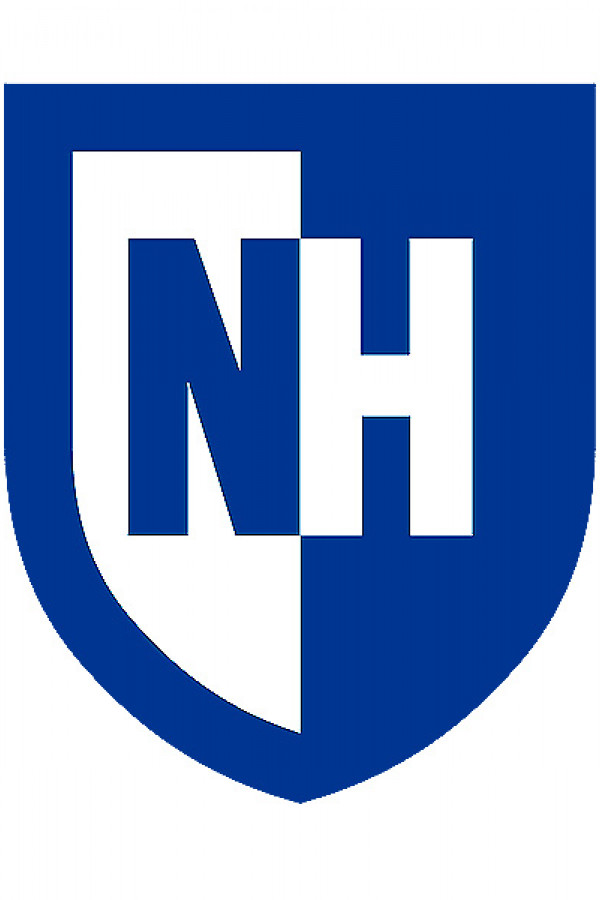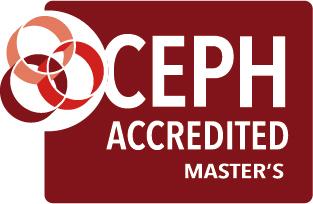Enhance the public health infrastructure and the health of populations in northern New England, with a special focus on New Hampshire
WHY GET A MASTER’S DEGREE IN PUBLIC HEALTH?
Public health is a fast-growing field that intersects with many fields and serves as the leading profession for keeping our communities healthier and safer. A master’s in public health (MPH) is one of the top credentials for public health workers. From a community health perspective, the MPH coursework lays the foundation to create, implement, and evaluate population-based strategies to study disease, health policy and environmental health in ways that improve the public’s health. It prepares graduates to enter multidisciplinary fields with strategies and skills that address a range of problems affecting communities.
WHY CHOOSE UNH’S MASTER OF PUBLIC HEALTH PROGRAM?
The MPH degree at UNH is a generalist degree, accredited by the Council on Education for Public Health (CEPH) that allows students to complete a curriculum focusing on multiple strategies and skills required within the public health field. The program can be completed in as little as five semesters or up to three years. In-person courses are offered in the evening and are designed to accommodate the schedules of working professionals. Additionally, the competitive tuition rate makes the program financially affordable. Through an emphasis on community engagement and hands-on experience, students complete a 100-hour field study and a capstone project allowing them to apply the theory and practice of public health in a real-world setting. To further enhance the MPH, you can also consider combining it with one of UNH’s many graduate certificates.
POTENTIAL CAREER AREAS
- Community health
- Consumer advocacy
- Epidemiology
- Government agencies
- Healthcare data analysis
- Health education
- Hospital administration
- Managed care
- Pharmaceutical companies
- Public health lab director
Curriculum & Requirements
The MPH curriculum meets the 22 CEPH accreditation competency requirements. This program can be completed in five semesters, and up to three years. During the final semester of the MPH Program, students complete a 100-hour professional field study experience applying public health principles and standards to professional projects within a public health organization. The final course in the curriculum is the integrating seminar in which students work in teams, bringing both their individual and joint perspectives, as well as their expertise together to address a specific public health problem for a public health institution.
To enter the MPH Program, an applicant must have a baccalaureate degree from an accredited college or university. Applications are accepted for fall and spring semesters. Upon completion of the certificate program, students may apply to the MPH program. If admitted into the MPH program, the certificate credits will be applied to the MPH degree program.
Please visit the Graduate School website for detailed instructions about applying to the graduate certificate program.
Sample Degree Plan
This sample degree plan serves as a general guide; students collaborate with their academic advisor to develop a personalized degree plan to meet their academic goals and program requirements.
| First Year | Credits | |
|---|---|---|
| Term 1 | ||
| PHP 900 | Public Health Care Systems | 3 |
| PHP 901 | Epidemiology | 3 |
| PHP 902 | Environmental Health | 3 |
| Term 2 | ||
| PHP 903 | Biostatistics | 3 |
| PHP 904 | Social and Behavioral Health | 3 |
| PHP 905 | Public Health Administration | 3 |
| Term 3 | ||
| PHP 906 | Public Health Finance and Budgeting | 3 |
| PHP 907 | Public Health Policy | 3 |
| PHP 908 | Public Health Ethics | 3 |
| Term 4 | ||
| PHP 912 | Public Health Law and Negotiation | 3 |
| PHP 922 | Public Health Economics | 3 |
| PHP 926 | Evaluation in Public Health | 3 |
| Term 5 | ||
| PHP 990 | Field Study | 3 |
| PHP 998 | Integrating Seminar | 3 |
| Credits | 42 | |
| Total Credits | 42 | |
Degree Requirements
The program requires 14 courses, (42 credits).
| Code | Title | Credits |
|---|---|---|
| Required Courses | ||
| PHP 900 | Public Health Care Systems | 3 |
| PHP 901 | Epidemiology | 3 |
| PHP 902 | Environmental Health | 3 |
| PHP 903 | Biostatistics | 3 |
| PHP 904 | Social and Behavioral Health | 3 |
| PHP 905 | Public Health Administration | 3 |
| PHP 906 | Public Health Finance and Budgeting | 3 |
| PHP 907 | Public Health Policy | 3 |
| PHP 908 | Public Health Ethics | 3 |
| PHP 912 | Public Health Law and Negotiation | 3 |
| PHP 922 | Public Health Economics | 3 |
| PHP 926 | Evaluation in Public Health | 3 |
| PHP 990 | Field Study | 3 |
| PHP 998 | Integrating Seminar | 3 |
| Total Credits | 42 | |
Grading Policy: For the purposes of determining academic standing, grades below the “B-” level in graded courses are considered failing grades. The MPH program director will recommend dismissal of a student to the Graduate School when a failing grade occurs in six or more credits, either in two courses or in one course taken twice. Repeating a course does not remove the original failing grade from the record. Students must have a cumulative grade point average of 3.0 (B), or higher, in order to graduate. Students admitted on a conditional or provisional basis must meet the conditions or provisions as stated in the letter of admission in order to remain in the Graduate School.
Program Learning Outcomes
CEPH Foundational Competencies:
Evidenced-based Approaches to Public Health
- Apply epidemiological methods to the breadth of settings and situations in public health practice.
- Select quantitative and qualitative data collection methods appropriate for a given public health context.
- Analyze quantitative and qualitative data using biostatistics, informatics, computer-based programming and software, as appropriate.
- Interpret results of data analysis for public health research, policy or practice.
Public Health and Health Care Systems
- Compare the organization, structure, and function of health care, public health, and regulatory systems across national and international settings.
- Discuss the means by which structural bias, social inequities and racism undermine health and create challenges to achieving health equity at organizational, community and societal levels.
Planning and Management to Promote Health
- Assess population needs, assets and capacities that affect communities’ health.
- Apply awareness of cultural values and practices to the design or implementation of public health policies or programs.
- Design a population-based policy, program, project or intervention.
- Explain basic principles and tools of budget and resource management.
- Select methods to evaluate public health programs.
Policy in Public Health
- Discuss multiple dimensions of the policy-making process, including the roles of ethics and evidence
- Propose strategies to identify stakeholders and build coalitions and partnerships for influencing public health outcomes
- Advocate for political, social or economic policies and programs that will improve health in diverse populations
- Evaluate policies for their impact on public health and health equity.
Leadership
- Apply principles of leadership, governance and management, which include: creating a vision, empowering others, fostering collaboration and guiding decision-making.
- Apply negotiation and mediation skills to address organizational or community challenges.
Communication
- Select communication strategies for different audiences and sectors.
- Communicate audience-appropriate (i.e., non-academic, non-peer audience) public health content, both in writing and through oral presentation
- Describe the importance of cultural competence in communicating public health content.
Interprofessional and/or Intersectorial Practice
- Integrate perspectives from other sectors and/or professions to promote and advance population health.
Systems Thinking
- Apply a systems thinking tool to visually represent a public health issue in a format other than standard narrative.
UNH Master of Public Health Program Competencies
- Use innovative problem-solving to impact complex public health issues.
- Strengthen leadership skills through reflection and observation to identify areas for personal and professional growth.
- Analyze the impact of determinants of health on public health issues using a social ecological framework.
- Apply basic principles of ethical analysis to improve health equity and policy relevance.
- Incorporate relevant theories to inform and create public health interventions.
Deadlines
Applications must be completed by the following deadlines in order to be reviewed for admission:
- Fall: July 1
- Spring: December 15
- Summer: N/A
- Special: N/A
Campus: Durham
Application fee: $65
New England Regional: RI VT
Accelerated Masters Eligible: No
New Hampshire Residents
Students claiming in-state residency must also submit a Proof of Residence Form. This form is not required to complete your application, but you will need to submit it after you are offered admission, or you will not be able to register for classes.
Transcripts
If you attended UNH or Granite State College (GSC) after September 1, 1991, and have indicated so on your online application, we will retrieve your transcript internally; this includes UNH-Durham, UNH-Manchester, UNH Non-Degree work and GSC.
If you did not attend UNH, or attended prior to September 1, 1991, then you must upload a copy (PDF) of your transcript in the application form. International transcripts must be translated into English.
If admitted, you must then request an official transcript be sent directly to our office from the Registrar's Office of each college/university attended. We accept transcripts both electronically and in hard copy:
- Electronic Transcripts: Please have your institution send the transcript directly to grad.school@unh.edu. Please note that we can only accept copies sent directly from the institution.
- Paper Transcripts: Please send hard copies of transcripts to: UNH Graduate School, Thompson Hall- 105 Main Street, Durham, NH 03824. You may request transcripts be sent to us directly from the institution or you may send them yourself as long as they remain sealed in the original university envelope.
Transcripts from all previous post-secondary institutions must be submitted and applicants must disclose any previous academic or disciplinary sanctions that resulted in their temporary or permanent separation from a previous post-secondary institution. If it is found that previous academic or disciplinary separations were not disclosed, applicants may face denial and admitted students may face dismissal from their academic program.
Letters of recommendation: 3 required
Recommendation letters submitted by relatives or friends, as well as letters older than one year, will not be accepted.
Personal Statement
Applicants are required to submit a narrative which addresses five questions. Please submit an answer to each question separately in 250 words or less: Download Special Essay Questions.
Statements must be included with your submitted application.
Resume
A current resume is required with your submitted application.
Important Notes
All applicants are encouraged to contact programs directly to discuss program-specific application questions.
International Applicants
Prospective international students are required to submit TOEFL, IELTS, or equivalent examination scores. English Language Exams may be waived if English is your first language. If you wish to request a waiver, then please visit our Test Scores webpage for more information.
Explore Program Details
-
Adjunct Faculty
-
Adjunct Faculty
-
Adjunct Faculty
-
Adjunct Faculty
-
Adjunct Faculty
-
Professor
The UNH Public Health program has held accreditation from the Council on Education for Public Health (CEPH) since 2003 and is accredited through July 1, 2027.






